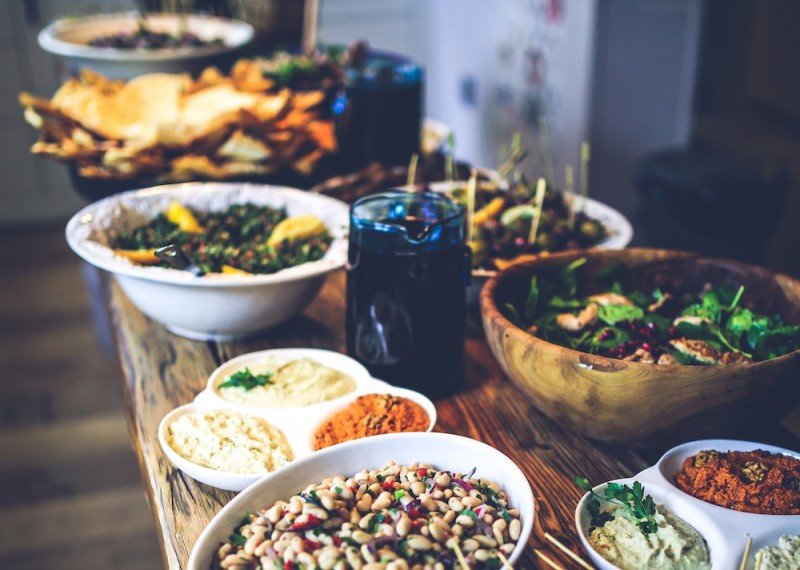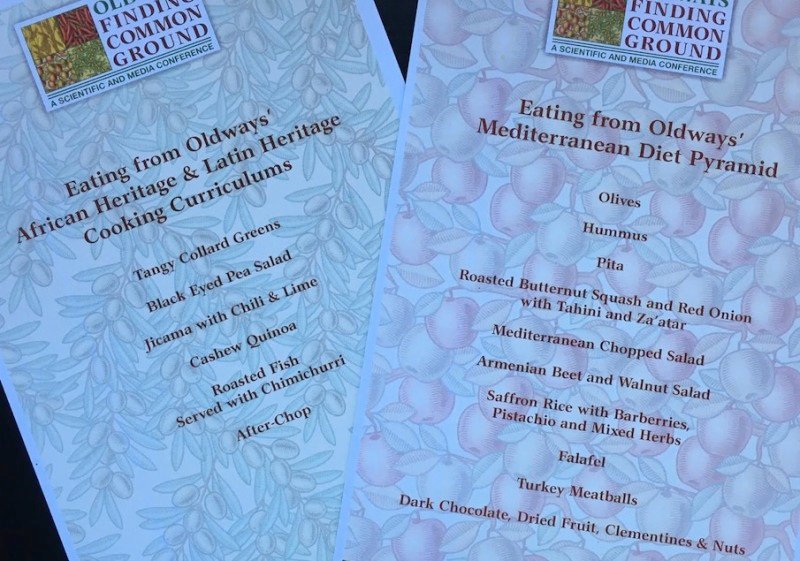 Happy Monday! I’d like to point you in the direction of my latest On Nutrition column in The Seattle Times, “Vegan, Paleo, low-fat–they all have something in common.” But come right back, because now I’m going to take you behind the scenes of the amazing gathering of nutrition scientists, medical experts, food systems experts and health/nutrition journalists (most them registered dietitians) who gathered in Boston on one chilly weekend to talk about Finding Common Ground among seemingly disparate nutritional philosophies.
Happy Monday! I’d like to point you in the direction of my latest On Nutrition column in The Seattle Times, “Vegan, Paleo, low-fat–they all have something in common.” But come right back, because now I’m going to take you behind the scenes of the amazing gathering of nutrition scientists, medical experts, food systems experts and health/nutrition journalists (most them registered dietitians) who gathered in Boston on one chilly weekend to talk about Finding Common Ground among seemingly disparate nutritional philosophies.
Beyond Academics
The two days of discussion and debate were not mere academic exercises about which eating patterns or foods are better for health. Yes, a lot of science was cited, but in the end, the experts assembled clearly cared about whether or not the public is eating in a way that promoted health while still being delicious and at the same time ensured access to healthy food for all–now and generations from now. Even when there was fiercer debate, there was always a feeling of mutual respect and congeniality. As one guest speaker (who had apparently been in quite a few less-respectful scientist-filled rooms) quipped, “You people are amazingly nice.” Indeed.
If you are what you eat, then one way to learn something about someone is to eat a meal with them. In keeping with the theme of the various dietary pyramids developed by Oldways (the conference sponsor), Finding Common Ground offered the most amazing conference meals I’ve ever had (sadly, I’ve been to far too many nutrition conferences where breakfast is muffins, fruit, and crappy super-sweetened yogurt). And everyone really enjoyed their food. I’ve also never heard (or been asked) the question, “So how do you eat?” so many times. (My answer? “I’m an omnivore, and I eat a lot of plants.”)
 Starry-Eyed Highlights
Starry-Eyed Highlights
I’m going to fess up…I was totally geeking out during this conference. It’s one thing to have read people’s work, whether it be dense scientific papers or more consumer-friendly books based on that research, it’s another to be in the same room with them. I’ve been a die-hard fan of Dr. David Katz ever since he wrote the opinion piece, “Actually, no, you’re NOT a nutrition expert” a few years ago. I also had several wonderful conversations with his lovely wife, Catherine, who merged her French foodie sensibilities with his ideas about healthy eating, and raised five happy, healthy children (two of whom I met). Catherine has her own website, Cuisinicity, about her 20 years of “kitchen experiments” with delicious, healthy food (she also has PhD in neuroscience, which is pretty impressive).
I was also thrilled to have a chance to talk with dietitian, cookbook author and Washington Post nutrition columnist Ellie Krieger, who I had met briefly once before. (Little known fact: She can bake a mean mulberry pie.) I have a friend who is an Ellie superfan, and he asked me, “What is she like?” Well, she’s as nice as you would expect if you ever watched her Food Network show. I have most of her books, and am particularly looking forward to her upcoming book, You Have It Made, which is all about make-ahead meals, which is something I am constantly encouraging my patients to do (and do myself frequently). Ellie took a tremendous amount of care with this book, including testing recipes when eaten fresh and after freezing and reheating them, plus testing different ways of reheating (covered, not covered, and so on). The book will be released January 5, and I know I will be recommending it to my patients and clients!
Go Med!
Another highlight was the conversation over delicious Mediterranean food (with wine) at the opening night reception with Dr. Simon Poole, a family physician in Cambridge, England and ardent advocate of the Mediterranean diet (and of the value of nutrition and lifestyle changes for treating heart disease). I learned more about olive oil from our conversation than I’ve learned anywhere else, including how olive oil with a polyphenol content above a certain level can put heart-healthy claims on the label, but since the big olive oil companies can’t guarantee that their oil qualifies (and thus can’t have the claim on their labels), they want the claim to be something that no average person would understand (something like “reduces LDL oxidation” instead of “protects heart health”) so that the small, artisan olive oil producers (who can guarantee that their product is high in polyphenols) don’t have a marketing advantage. Fascinating! If you are ever taste-testing olive oils from smaller producers, especially organic producers, and you notice more of a peppery bite, that’s probably the polyphenols talking.
I also enjoyed talking with many of the members of the Oldways team. I’ve been a fan of Oldways since I chanced upon their Mediterranean Diet Pyramid 10 years ago, or so, and have appreciated their continued development of other “heritage” pyramids that focus on the way people of different cultural backgrounds ate before fast food and other highly processed food became ubiquitous. It’s all about real, delicious food. They have a lot of great recipes and resources on their website, so check them out!






